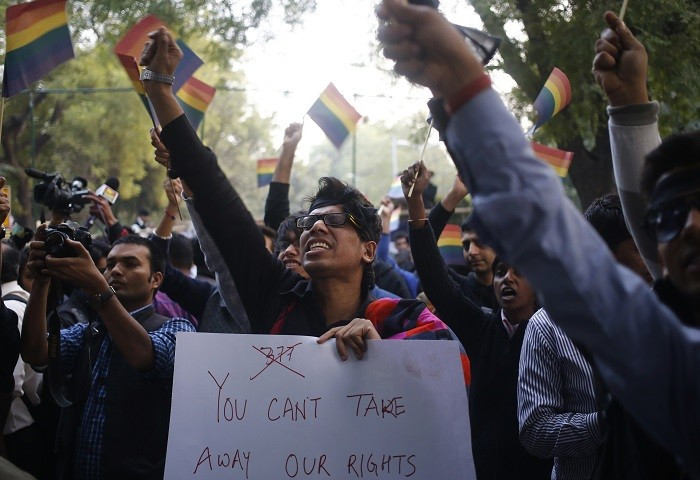Time for the Sun to Set on the British Empire's Homophobic Legacy

A common refrain of Victorian politicians was that the 'sun never sets on the British Empire.' Although the British Empire has been dismantled, the sun is yet to set upon its legacy of homophobic laws that continue to deprive gay people of their fundamental rights in 41 countries across the Commonwealth.
In India, gay people are reeling from the shock of the Supreme Court decision to reverse a landmark 2009 Delhi High Court order that decriminalised gay sex. The archaic law in question - Section 377 of the Indian Penal Code - dates back to 1861and was introduced during the time of British rule. Starting with the so-called 'sub-continent', it has spread across much of the rest of the former British Empire.
Across the Commonwealth, there was much hope that India's Supreme Court would have upheld the Delhi High Court ruling. This could have paved the way for the 41 countries of the Commonwealth which currently criminalise gay sex to strike down those laws. Instead, India's highest judicial body has failed its constitutional duty to protect minorities against the whim of the majority, arguing that Parliamentarians should decide the fate of lesbian, gay and bisexual people.
What should our response be in those parts of the world that haven't managed to overturn such pernicious laws? What are we doing, and are we doing enough?
It is important to acknowledge at the outset that this is a delicate issue. Far too often, incumbents use anti-gay sentiment to their advantage, apportioning 'gay rights' to the 'libertine' ethos of the West while conveniently glossing over the several domestic campaigns in their countries that call for change. Despite the powerful challenges, brilliant activists across the Global South are standing up for their fundamental human rights and refusing to bow down.
At Stonewall, we are doing what we can to make sure that UK government officials take the time to listen to those campaigners and follow their lead. This week we launched 'Engaging with the UK Government: A guide for lesbian, gay, bisexual and transgender activists worldwide'. This guide supports equality campaigners by detailing how they can use the UK Government's support for campaigns in their country. Pressingly, the UK Government and other interested parties must do all they can to make sure that the heads of state across the Commonwealth listen to the voices of their own people.
International businesses can play their part as well. Through Stonewall's Diversity Champions and Global Diversity Champions programme, we now work with over 120 international businesses to help them improve the working environment for their gay staff and promote equality more broadly. Increasingly, our partner organisations are asking us what they can do to support their gay staff in countries with laws that criminalise homosexuality. Business leaders want their staff to be able to be open about who they are because they recognise the truth behind the adage, 'people perform better when they can be themselves'. This presents an opportunity for creative partnerships between the UK FCO, UK businesses and equality activists worldwide.
With a wide range of interested parties calling for gay equality, the movement will continue to build momentum. Although it may be a slow and very hard process, the sun will undoubtedly set on these homophobic laws.
Jasmine O'Connor is Senior International Officer with Stonewall, working to champion LGBT rights and tackle homophobia in all its forms. Visit the Stonewall website to find out more about the group and its activities, or you can tweet Jasmine @Jasmine_OC or @StonewallUK.
© Copyright IBTimes 2025. All rights reserved.





















